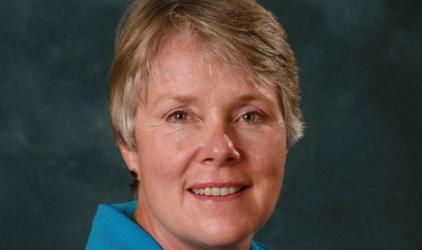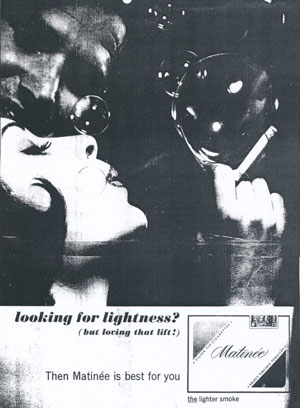History Education at the University of Ottawa (Sharon Anne Cook)

I coordinate an Educational Research Unit in the University of Ottawa’s Faculty of Education which is devoted to promoting the educational history of Ottawa and the Outaouais Region of the National Capital area. Making History/Faire l’histoire: Narratives and Collective Memory in Education/Récits et mémoires collectifs en éducation aims to strengthen interdisciplinary links between researchers and scholars, addressing critical issues in the history of education of Aboriginal Peoples and Franco- and English-Ontarians as regards citizenship, gender, anti-racism, pedagogy and curricula. Our members are drawn from History and Education at the University of Ottawa: Stéphane Lévesque, Lorna McLean, Nicholas Ng-A-Fook, Timothy Stanley and myself from Education, and Ruby Heap from History. Selected projects of the Unit (graciously supported by a grant from THEN/HiER) include a far-ranging bibliography in French and English of Oral History sources; a guest-edited issue on Education and Oral History in the Oral History Forum; a yearly speakers’ series featuring noted historians, teachers and educationists; conference presentations and jointly-written articles; and an evaluative role in the Governor General’s Award for Excellence in Teaching Canadian History. The Unit aims to train both undergraduate and graduate students in the techniques and ethics of oral history, and to build a repository of oral history accounts using video equipment.
For more than a decade I have been a member of a CIDA-funded project titled Developing a Global Perspective for Educators/Développement d’une perspective globale pour enseignants et enseignantes. This collective, which includes Lorna McLean, Nicholas Ng-A-Fook, Ruth Kane, and Tracy Crowe, aims to have teacher education students and experienced teachers incorporate themes of peace education, sustainability, development, and gender equity into the mainstream curriculum. As I near retirement, the coordination of this collective has moved to Nicholas Ng-A-Fook, who has developed very strong links with the local educational community and re-visioned the collective.
 Recently named Distinguished University Professor at the University, I have just completed a social history of Canadian women and smoking for McGill-Queen’s University Press to be published in spring 2012. Sex, Lies and Cigarettes: Canadian Women, Smoking and Visual Culture, 1880 - 2008 is the first historical survey of smoking in Canada. It explores women’s long association with smoking in this country – first as implacable opponents of male smoking, and as protectors of children who would be smokers, then as consumers themselves, and as sexualized symbols to sell tobacco, such as we see in this sample 1961 advertisement for Matinee Cigarettes. Advertisements like this one help us unpack the gendered, raced, regionalized and linguistically-specific attractions for women seeking a modern identity through smoking. The “invisible” girl smoker from school health textbooks makes a (non) appearance, as do “liberated” feminist smokers, and marginalized women smokers of the Lower East Side and in other poor and racialized non-white regions in Canada. Countless screen sirens taught many women how to smoke while attending the movies. I hope to continue my studies of young women smokers from cultural and regional communities where smoking rates are higher than the norm through oral histories – returning to the work of the Making History/Faire l’histoire Educational Research Unit.
Recently named Distinguished University Professor at the University, I have just completed a social history of Canadian women and smoking for McGill-Queen’s University Press to be published in spring 2012. Sex, Lies and Cigarettes: Canadian Women, Smoking and Visual Culture, 1880 - 2008 is the first historical survey of smoking in Canada. It explores women’s long association with smoking in this country – first as implacable opponents of male smoking, and as protectors of children who would be smokers, then as consumers themselves, and as sexualized symbols to sell tobacco, such as we see in this sample 1961 advertisement for Matinee Cigarettes. Advertisements like this one help us unpack the gendered, raced, regionalized and linguistically-specific attractions for women seeking a modern identity through smoking. The “invisible” girl smoker from school health textbooks makes a (non) appearance, as do “liberated” feminist smokers, and marginalized women smokers of the Lower East Side and in other poor and racialized non-white regions in Canada. Countless screen sirens taught many women how to smoke while attending the movies. I hope to continue my studies of young women smokers from cultural and regional communities where smoking rates are higher than the norm through oral histories – returning to the work of the Making History/Faire l’histoire Educational Research Unit.
Currently I teach in the graduate program in the Faculty of Education and help administer the post-degree Teacher Education Program. I remain an admirer of the remarkable young (and sometimes not-so-young) candidates who are preparing to teach the next generation of students, especially those in history classrooms. If the only factor in a strong educational system were the quality of its teachers, I am certain we would have nothing to worry about in our future. An historical perspective of teachers and teaching in Canada demonstrates that while other factors are vital to the health of any educational system, the teaching force is deeply important, and that it has never been stronger.

